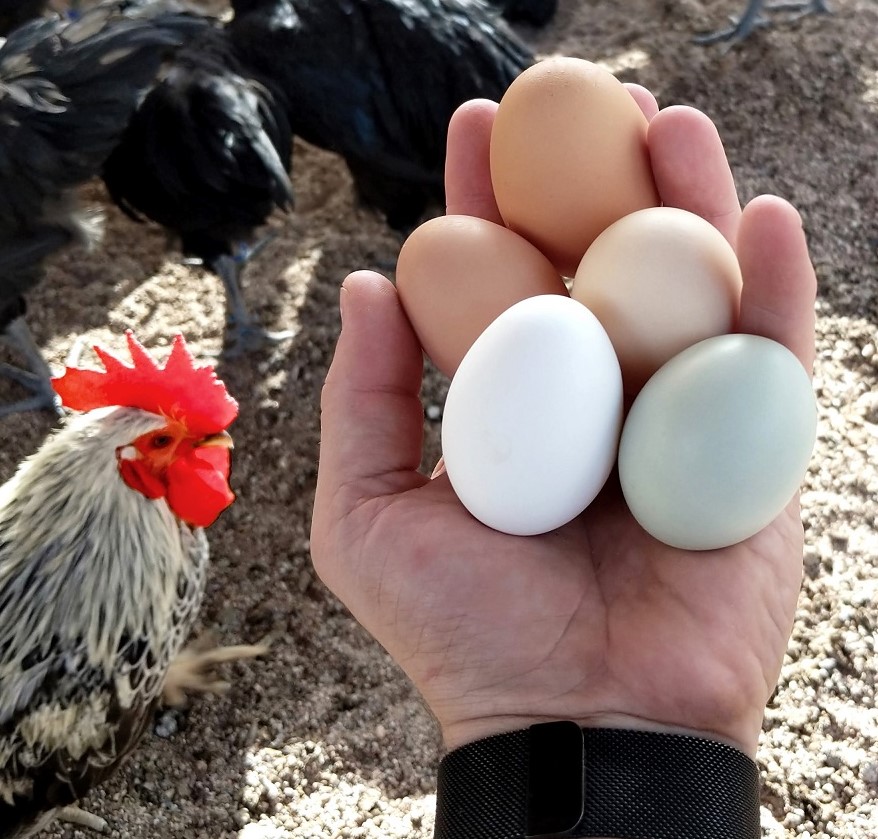The price of eggs may be too darn high, but there are actions we can take to build the resilience of our food supply – and some things that won’t work at all.
Consumers have become used to a certain amount of supply chain chaos since the pandemic began, but in recent months, the price of eggs spiked even higher than the average inflationary increase in the grocery cart. Once an affordable source of protein, a dozen regular eggs cost about $2 across much of the country a year ago, but now they’re $3.99 at the local big box grocery – and that’s down from about $5.99 a few weeks ago!
What gives?
The problem, it turns out, is similar to the public health crisis that came out of nowhere in late 2019 and still hasn’t gone away: a bird virus. Just like COVID takes advantage of crowded conditions and fast travel to spread around the world, so too has the H5N1 virus exploited highly packed conditions in industrial poultry operations and wild migratory birds to spread around the world, occasionally infecting people and other mammals along the way. Since the beginning of 2022, more than 57 million chickens have been killed in the United States. Dead hens don’t lay eggs, so the greatly reduced supply, along with high inflation across the board, worked exactly as they taught in Econ 101. The price of eggs went up.
Classic free market advocates will point out that an increase in the price of eggs should do two things.
First, it acts as a damper, rationing eggs by cost and encouraging people to buy cheaper alternatives instead. Maybe more people eat oatmeal for breakfast or mash up a chunk of ripe banana for their muffin recipe (although don’t get me started on why bananas shouldn’t be that cheap, either).

Second, it should encourage entrepreneurs to get in on a cut of the action. Unfortunately, it can take five months from the day an egg is laid to the point that the resulting hen is grown up enough to start producing her own. That’s why there’s going to be a lag after poultry farmers cull their flocks and before they’re up and running again. It’s much the same for backyard chicken keepers, so while you can pick up some cute chicks at the local farm ‘n feed store, there’s still a while before they’ll start laying for you. That said, hatcheries have been overwhelmed by demand lately. The price of eggs has inspired plenty of people to install a new Inflation Coop next to their COVID garden, a wise choice considering the way the world looks to be going.
That’s it. Realistically, the article should end right here.
We’re the USA, though, so you know there are going to be shenanigans involved. And so there are.
To nobody’s surprise, the first shenanigan involves profiteering and a potential investigation. When the price of eggs increased, so too did the profit margin for Big Egg. Cal-Maine Foods, which controls 20% of the American egg market (and claims to have found no cases on avian flu in its facilities), experienced a 600% increase in gross profits year over year, according to the Securities and Exchange Commission, prompting both Farm Action (an agriculture advocacy group) and Senator Jack Reed (D-RI) to ask the Federal Trade Commission to look into price gouging allegations on the part of Cal-Maine and other big time egg producers. Econ 101 also tells us that producers can and should charge what the market will bear, but even laissez-faire advocates don’t like paying more for breakfast.
Adding to the face-palmery are the conspiracy hypothesists.
Last summer as the bird flu was ramping up, a rumor circulated in social media posts and the seedier underbelly of the Internet: that the outbreak was fake news. “There is no ‘bird flu’ outbreak,” wrote one man on Reddit (as quoted by CBS News). “It’s just COVID for chickens.” Or maybe it is real, but it’s a bioweapon. Or that it’s all about 5G. Because of course.
Another conspiracy insists that animal feed producers sabotaged their product so America’s backyard chickens would no longer lay eggs, forcing people who were trying to be more self-sufficient back to the grocery store in order to buy those overpriced eggs. It would be comedic if it weren’t so sad. It’s been winter in North America, where cold and dark conditions are likelier contributors to reduced output than companies deliberately shooting themselves in the foot to help other companies. Further, to make sure backyard chickens have the proper nutrition, a better answer might be to retreat further from the industrial system and give chickens access to superior food through free ranging, garden treats and, ahem, homegrown sources of protein.
Conspiracy theories may be the result of stressful and changing times, but why not look into another solution that has a real chance of working?
A proposal out of the meat-chicken industry could lower the price of eggs while reducing food waste by allowing their excess eggs to be sold as food. Currently that is not allowed, because those meat-bird eggs are kept at 65°F until they go into an incubator to produce more broilers. Eggs intended for human consumption must, by law, be stored at 45°F within 36 hours of being laid. Therefore, excess meat-chicken eggs which are not incubated are usually thrown away or turned into animal food.
It may sound like a scary food safety issue, but eggs are fairly hardy as far as perishables go, and by selling those eggs to the processing market, where they would be pasteurized and used in cooked foods like baked goods, it would free up more consumer-grade eggs for home use.
So what’s holding this back? A 2009 law which could be changed, and probably the same kind of industrial food supply chain inertia that we saw at the beginning of the pandemic, when grocery stores were empty and restaurant supply houses and their producers were throwing away massive quantities of food because there was no way to get it to the usual market. Our food system isn’t very resilient, and this creates a lot of waste which we are increasingly unable to afford.
All the more reason to decentralize the food system by turning part of your yard into food production and supporting your local farmers.
Related: So You Want to Start a COVID Farm?


Join the conversation!